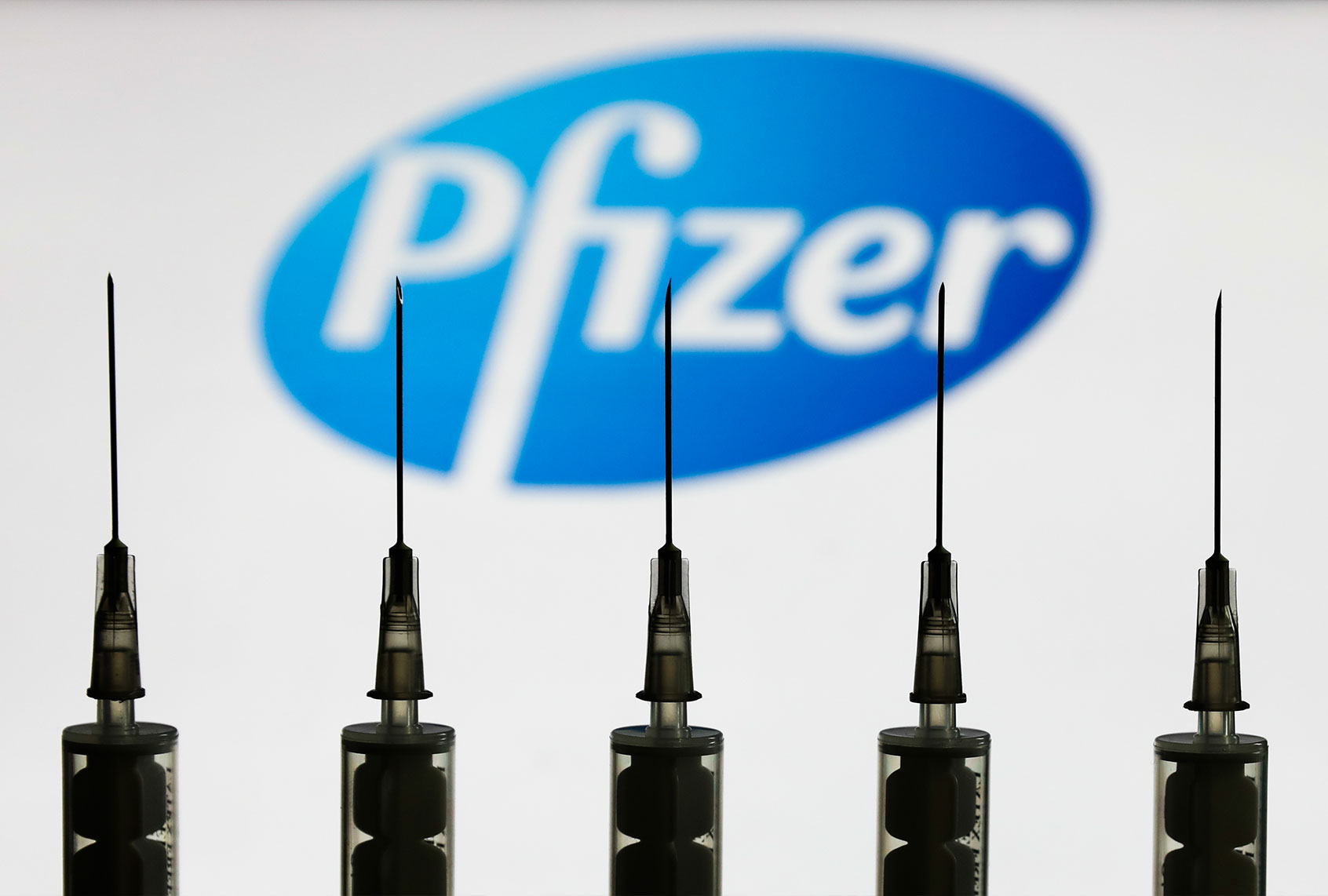The American pharmaceutical company Pfizer announced on Monday that its COVID-19 vaccine candidate is more than 90% effective at preventing infection. But don’t get your hopes up for an end to the pandemic just yet. Researchers say there’s a whole lot more that needs to be done to reach the production phase — and there are significant hurdles to distribution, too.
Pfizer, which is developing a vaccine with a German biotechnology company called BioNTech SE, explained in a joint statement that they had seen a higher success rate in their preliminary findings than many had anticipated. Specifically, the companies reported that people given two doses as part of a clinical trial had 90% fewer symptomatic cases of the disease than individuals who had received a placebo. (A placebo is a drug that has no effect on a patient but is administered to provide a control in pharmaceutical tests.)
However, the data behind the companies’ study has not yet been released to the public. Until that happens, it will be impossible for independent researchers to verify and confirm their findings.
According to the Centers for Disease Control and Prevention (CDC), a successful vaccine would initially be given to smaller groups of people including essential workers, healthcare workers, people above the age of 65 and individuals with high risk medical conditions.
Despite these factors potentially mitigating the magnitude of the news, Pfizer CEO Albert Bourla hailed the study as “a great day for science and humanity,” adding that “we are reaching this critical milestone in our vaccine development program at a time when the world needs it most with infection rates setting new records, hospitals nearing over-capacity and economies struggling to reopen.”
America’s outgoing president, Donald Trump, responded to the news by tweeting, “STOCK MARKET UP BIG, VACCINE COMING SOON. REPORT 90% EFFECTIVE. SUCH GREAT NEWS!” President-elect Joe Biden took a cautiously optimistic tone, telling reporters that it is “important to understand that the end of the battle against Covid-19 is still months away,” that “it will be many more months before there is widespread vaccination in this country” and that until that happens “Americans will have to rely on masking, distancing, contact tracing, hand washing, and other measures to keep themselves safe well into next year.”
Indeed, distributing a successful vaccine is challenging due to the industrial logistics. Vaccines doses have to be kept at ultracold temperatures, due to the vaccines’ mRNA content. No plan has been established by the government of its role in overseeing distribution, it is uncertain where the vaccines would be administered and the Pfizer vaccine candidate requires patients to return three weeks later for a second dose.
As of last month, Pfizer was one of just four pharmaceutical companies that had vaccine candidates in Phase III of clinical trials. Phase III trials are initiated after a drug has initially proved safe and shown promise among smaller and increasingly diverse groups of participants. [Read about what each phase means.]
“In a typical Phase III study design, volunteers are randomized to receive either the vaccine or a placebo,” Dr. Russell Medford, Chairman of the Center for Global Health Innovation and Global Health Crisis Coordination Center, told Salon last month. “Scientists then monitor all the volunteers over time (months) to see who becomes infected or develops potential side effects. Neither the volunteers nor the scientists conducting the study know which volunteer has received the vaccine or placebo. It is only at pre-specified times, such as at the end of the study, that ‘the blind is broken’ and the number of infections and potential side effects is compared between the vaccine and placebo groups.”
Pfizer initially announced that it was entering Phase II and Phase III of its clinical trials in July. The company was aided by the federal government through a federal public-private partnership program called Operation Warp Speed. In July Pfizer received an initial order from the US government of 100 million doses for $1.95 billion, with the option to later purchase an additional 500 million additional doses.
“We continuously monitor and evaluate the safety profile of the Pfizer vaccine candidate, including review by an external, independent Data Monitoring Committee (DMC) composed of vaccine safety experts,” a spokesperson for Pfizer told Salon by email in September. “To date, no safety signal has been identified, and the DMC has recently recommended continuing the trial as planned.”


